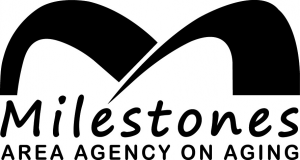September 2, 2021
Sun Safety for Older Adults
 By Mike Mathews
By Mike Mathews
Milestones Area Agency on Aging
Sun safety is important at any age, especially when we are older. According to the National Council on Skincare Prevention, skin cancer is more prevalent in our senior years. And, between 86 and 90 percent of all skin cancers are related to exposure to the sun’s ultraviolet rays according to the Skin Cancer Foundation.
For those of us who are older, the risks associated with sun damage are much higher because as we age, our skin becomes thinner and doesn’t rejuvenate as easily. This makes us more susceptible to sunburn and other damage, including skin cancer.
The sun releases different types of UV rays, a form of radiation: UVB, UVA, and UVC. Exposure to UVB rays can cause visible effects: Sunburn, suntan, brown spots, wrinkles, and skin cancer. To protect from UVB rays, it is recommended to wear a sunscreen of at least SPF30 whenever you or a loved one is outdoors. The sun’s UVA rays act more invisibly—they can cause wrinkles, brown spots, and skin cancer without a person even feeling warm or causing sunburn.
Prolonged exposure to UV rays significantly increases the risk of developing basal cell carcinoma, squamous cell carcinoma, and melanoma. Melanoma, the most serious form of skin cancer, is now one of the most common cancers and accounts for about three percent of skin cancer cases. The American Cancer Society reports the average age of someone diagnosed with melanoma is 63.
Because of the cumulative effect UV rays have on older adults, who may have spent decades in the sun, skin cancer risk also increases as we age because of decreased autoimmune function. Additionally, benign skin lesions, brown spots, and other signs of aging might make it more difficult to identify potentially malignant spots in time for effective treatment.
- Be proactive. Experts in dermatology have these tips for sun safety:
- Avoid prolonged exposure to the sun when possible. Peak times of day to be careful are between 10am and 4pm.
- Wear sunscreen with a minimum of SPF 30 and reapply every 2 hours.
- Wear clothing with a tight weave or high-SPF clothing. Stick with light-colors and lightweight to prevent heat stroke.
- Wear wide-brimmed hats and sunglasses with UV protection and side panels.
- Know your medications. Some, such as antibiotics, anti-depressants, anti-psychotics, and water pills, can make skin more sensitive to the sun.
- When outdoors for long periods, take breaks in shaded areas.
Milestones Area Agency on Aging is committed to working with communities and community-based organizations to increase awareness for aging successfully with dignity and independence.
To learn more about Milestones Area Agency on Aging and the programs we offer, please visit milestonesaaa.org.
Filed Under: Health & Wellness
Trackback URL: https://www.50pluslife.com/2021/09/02/sun-safety-for-older-adults/trackback/


